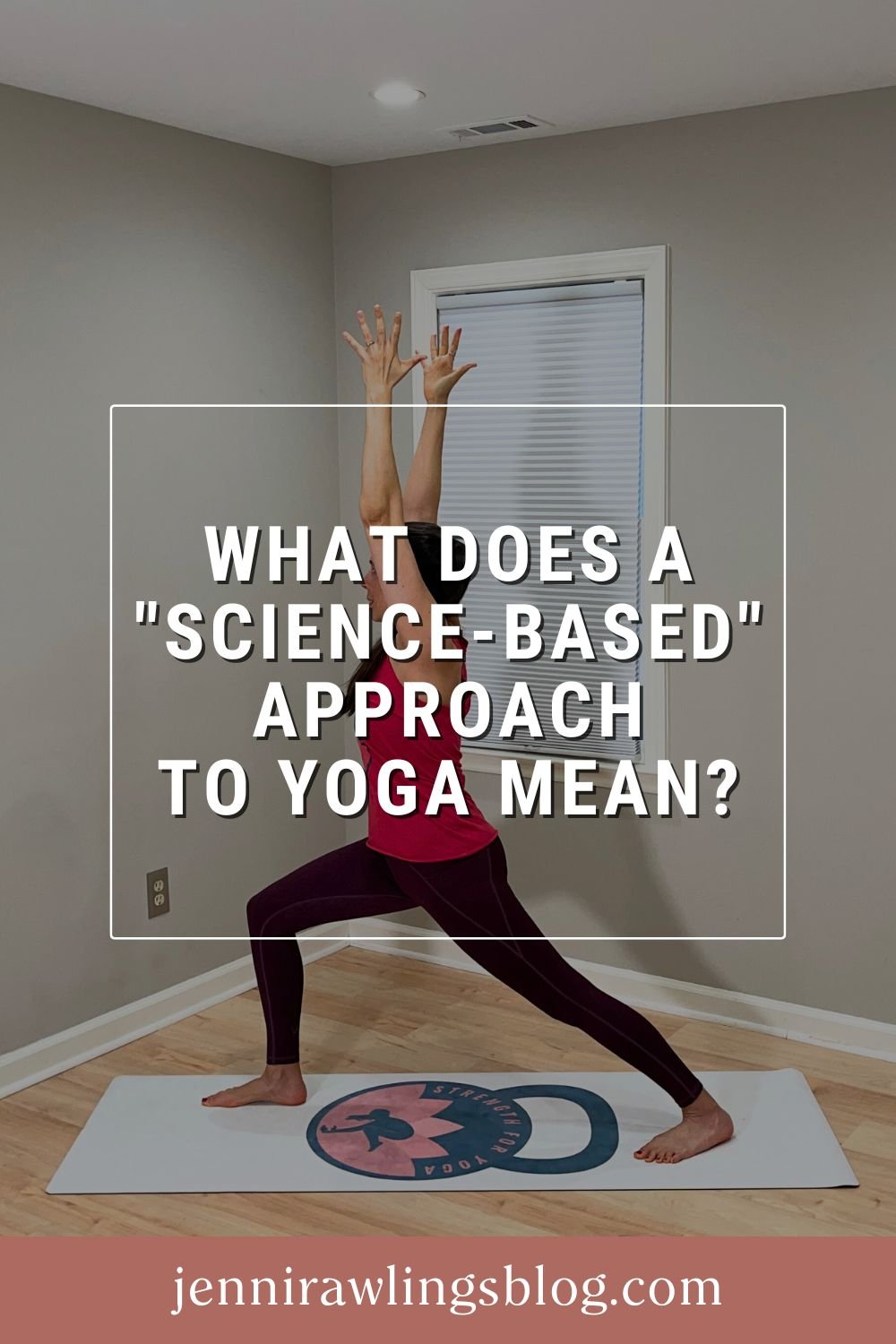What Does a "Science-Based" Approach to Yoga Mean?
This blog post was first sent to Jenni’s email list as an email newsletter. Sign up for the JRY email newsletter here!
As a member of my online community, you probably know that I approach yoga, the body, and movement through the lens of movement science.
But what does that actually mean?
Here's one way of describing it that I think can be quite helpful!
Many people think biomechanics is a field of study that's focused on “good,” “proper,” and “optimal” movement and alignment.
They assume that applying biomechanics to yoga means figuring out the “right” alignment in yoga asanas (and daily life) so we can avoid “incorrect” alignment that will cause pain/injury.
BUT! Biomechanics actually is not the study of good/bad movements.
"Good" and "bad" are *subjective labels* that are context dependent. Biomechanics, on the other hand, gives us objective information about movement that isn’t inherently good or bad; it just IS.
Biomechanics is the study of forces acting on the body and the effects those forces have. And that’s it!
If we want to talk about good/bad movements and alignment, we have to take that biomechanical information and place it in the context of an individual and their specific situation.
We must ask questions like these:
Who's the individual in question?
What's their current capacity?
What's their goal for this movement? (Is it general health? Injury prevention? Flexibility? Balance? Strength? Power? Something else?)
What parameters are we using to assess "good/bad" for this individual's movement, and how are we measuring them?
And so much more!
For example, a biomechanical word I’ve seen thrown around a lot in yoga conversations recently is "torque."
As in, “You shouldn’t angle your back foot the wrong way in Warrior 1 or you’ll torque the knee.”
The assumption here is that “torquing” the knee is bad.
But if we understand what “torque” actually means (instead of simply parroting the word because we’ve heard it used as a scary concept before 😛), we’d probably be a lot less likely to make a statement like that.
“Torque” is simply a rotational force. That’s all it is!
To be more technical about it, torque is force applied over a distance causing rotation about a fulcrum. And it’s the basis for how our body moves!
Torque is inherently neutral. It isn't good or bad.
Our joints experience torque all the time in our daily life movements. Torque is required for movement to happen at all!
Additionally, the structure of the knee joint allows torque. (For a breakdown of the multi-planar ways in which the knee joint can move, check out my blog post No Foot on the Knee in Tree Pose? Questioning the Cue.)
So there’s nothing inherently bad or wrong about “torquing the knee”!
Whether torque applied to the knee joint is actually a bad thing depends not only on the individual in question and their current capacity, but also on what parameters of torque we’re even talking about in the first place!
What’s the magnitude, duration, frequency, rate, etc., of that torque?
A little bit of torque in Warrior 1? That’s probably just fine for most people.
High-impact, high-speed torque applied in a fast athletic movement like cutting? Maybe not so fine for the typical yogi who isn't also a competitive athlete.
In summary, if we're interested in taking a science-based approach to yoga, we should avoid making blanket statements about good/bad yoga alignment.
Instead, we should embrace “if/then” statements, such as, “If your goal in Warrior 1 is ____, try angling your foot this way: _____.”
Speaking in absolutes about the human body is rarely supported by science. The nuanced, gray area of "it depends" is generally the more scientific answer.
Embracing "It Depends" in Our Yoga Education
Do you need CE hrs for Yoga Alliance, and do you want them to be evidence-based?
Are you interested in yoga education *beyond your YTT*?
Sharpen your critical thinking skills and liberate yourself from the traditional yoga rules we’ve all been taught. Join my CE yoga membership today!
20+ yoga anatomy & biomechanics courses
All courses on demand
All courses count as CE hours with Yoga Alliance
80+ hrs of CE course content
Membership includes my full yoga class library (300+ yoga classes)!
Private discussion forum
Starts w/ 7-day free trial!






